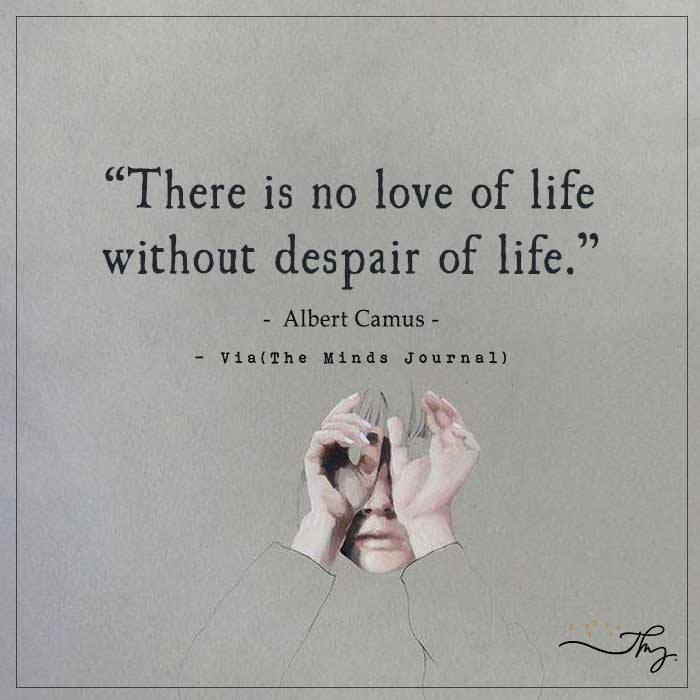Living with despair and dealing with it day in and day out can be an exhausting thing to go through. However, there is light at the end of the tunnel. Knowing how to deal with despair, especially knowing the right strategies can help you transform your pain into strength. Let’s explore what it feels like to deal with despair, and how to deal with despair.
KEY POINTS
- Every life is eventually touched by tragedy. No one is exempt from sufferings such as illness or the loss of a loved one.
- Ways to reduce despair include acknowledging rather than hiding it, avoiding toxic positivity, and seeking out fellowship.
- Despair can bring a deeper understanding for the suffering of others.
When you’re agonizing under the weight of despair, simple tasks feel daunting; getting out of bed, showering, or leaving the house requires herculean effort. To live with despair means to wake up every morning with a heaviness pressing down on your chest and a feeling of exhaustion no matter how many hours you slept.
Perhaps problems that you face seem insurmountable, such as financial ruin, chronic illness, or grieving the loss of a loved one. Such daunting circumstances can make despair a way of life.
It’s understandable that many people, desperate to escape the intolerable hopelessness generated by despair, turn to drugs or alcohol for relief. Sadly, when they sober up, they discover that the problems that they ran from have grown even worse.
What do you do when despair doesn’t go away?
Related: Understanding and Managing Anguish: 7 Powerful Tips To Turn Suffering into Strength
Battling Despair
Recently a beloved family member was diagnosed with an incurable illness. The shock of it knocked me down. It was inconceivable. No matter how I tried, I couldn’t believe it. How could someone I love so dearly receive such a damning diagnosis?
I withdrew from the world, stopped talking to friends and family. I even turned my back on my fellow Buddhists, who called relentlessly, trying to encourage me. I felt like part of my heart had cracked and fallen off, leaving me with a raw, exposed wound that would never heal.
“Why is this happening?” I wondered. “I’m a good person. Aren’t I supposed to be spared from such misery?”
Over time, as I started to connect with others who faced similar hardships, I was forced to recognize a stark reality: Every life is eventually touched by tragedy. Life’s most painful tragedies strike with cruel randomness.
After a long period of recalibration, I stopped asking “Why me?” and started asking “Why not me?” Did I really think that I would be absolved from universal hardships? Was it narcissism that led me to believe my family would be spared while other families would not? How callous of me to think other families should suffer while mine would be an exception.
Over time, a benefit of despair began to materialize: deeper empathy and understanding for the suffering of others. I left behind the delusion that we are all safe from harm; we are all equally vulnerable. In fact, in acknowledging that vulnerability, we unearth the deepest parts of our humanity.
Living with Despair
I wish I could say I resolved the despair that I felt. But the truth is, I’ve had to learn to live with it. When I was a younger, less experienced therapist, I thought there was a solution for every dilemma. I now realize how naïve I was. No happy ending lasts forever.
Deep despair has a sinister, punishing quality. To regain your footing is to go to battle with your most brutal demons. Though you may not be able to resolve the problems that you face, here are some tools to weaken despair’s grip on your heart.
Related: Navigating Pain: 5 Strategies for Dealing with Emotional Debris
How To Deal With Despair: 5 Ways To Cope With Despair
These tips won’t resolve despair, but they can take the edge off and open up a space for healing.
1. Take your despair for a walk.
Once a day, try your best to get out of the house for some fresh air.
A brisk walk raises your metabolism, boosts endorphins, and will give you much-needed headspace. Shaking off tension and gaining some vitamin D can also offer some relief.
2. Give your sorrow words.
When I can’t find the words for sadness, I always turn to poets and writers who are masters at capturing elusive feelings.
Finding the words for your despair offers comfort and solace. As Shakespeare wrote in Macbeth: “Give sorrow words; the grief that does not speak knits up the o-er wrought heart and bids it break.”
3. Honor your despair.
Please don’t deny it. Don’t push it away. When you acknowledge your despair, you take away some of its power over you.
For example, a friend who was struggling said to me, “Today is a dark day. I think I need to be alone.” I understood what he meant and was glad he shared his true feelings rather than “perform” feeling better. When he honoured his despair, I could too.

4. Seek out fellowship.
Isolation fuels despair. Seek out the company of people who share your experience. Faith-based communities or support groups such as AA or Al-Anon are free and give you a chance to connect with others.
As the Buddhist reformer Nichiren Daishonin wrote, “Even a feeble person will not stumble if those supporting him are strong, but a person of considerable strength, when alone, may fall on an uneven path.”
5. Avoid toxic positivity.
A patient in her weekly session shared with me that a friend cheerfully told her, “Don’t worry, everything will work itself out.” These may seem like comforting words; they had the opposite effect.
“I know he meant well,” she said, “but I felt the strong urge to punch him in the face.”
Her chronic illness was not going to work itself out. Such phrases, like “Everything happens for a reason,” are insensitive to those who are truly suffering. Life’s most devastating problems may be helped by a positive attitude but can’t be solved by one. Toxic positivity from others feels insulting when you’re faced with insurmountable grief.
Related: 5 Ways To Help Someone Who Is Dealing With Loss And Grief
In the end, you can learn to fly on wounded wings. Despair may knock the wind out of you, but when embraced and managed effectively, it can also lift you to even greater heights.
Want to know more about how to deal with despair? Check this video out below!
Written By Sean Grover L.C.S.W. Originally Appeared On Psychology Today










Leave a Reply